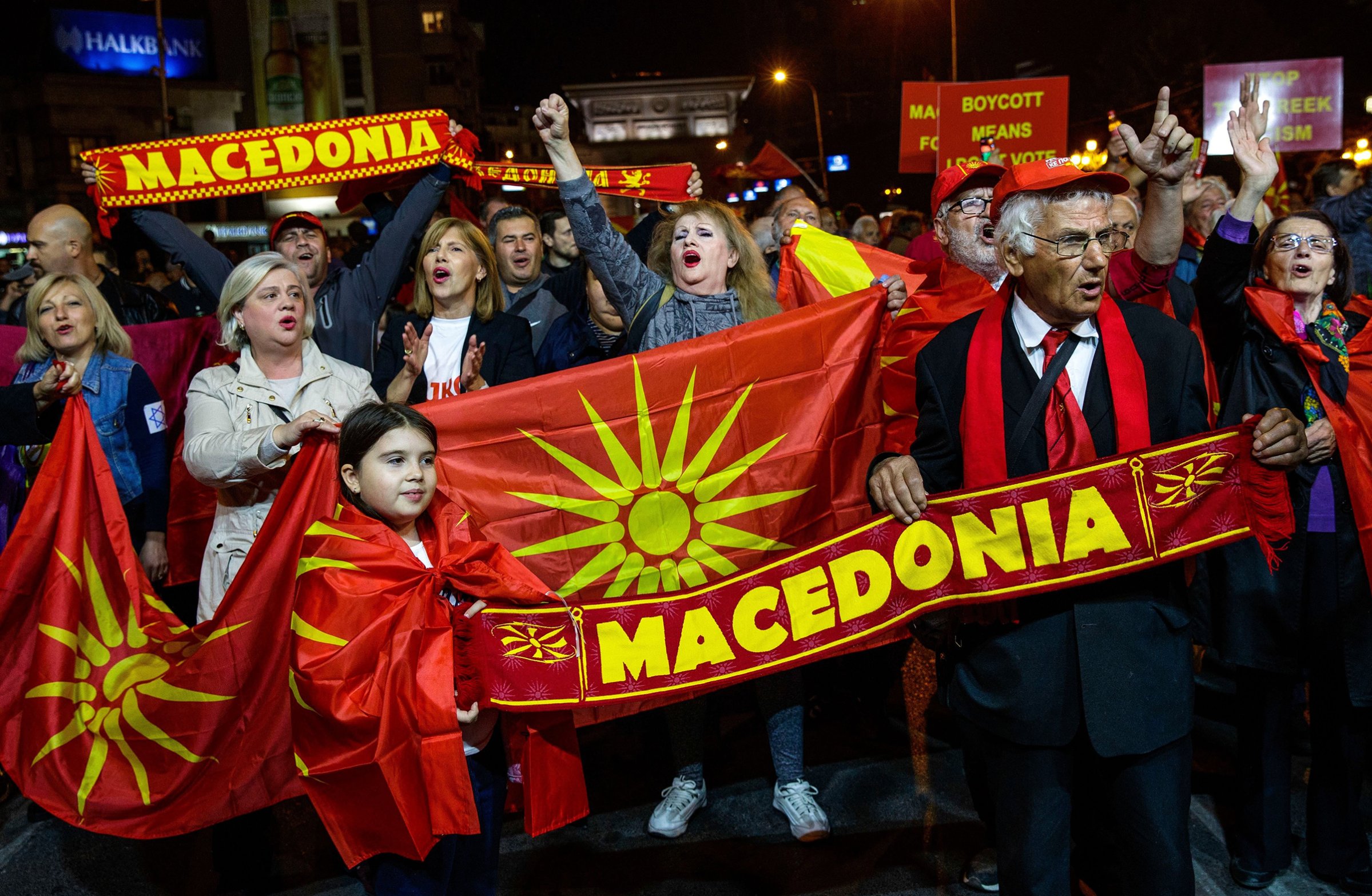
A Sept. 30 referendum to change the name of the nation that calls itself the Republic of Macedonia, to the Republic of North Macedonia, failed to deliver a binding result after only 37% of the electorate voted, well below the necessary 50% threshold. The result has stalled an attempt to end a decades-long dispute with neighboring Greece and pave the way to NATO and E.U. membership–a boon to Russia, which opposes the expansion of both bodies.
Name Game
The name Macedonia dates back to ancient times, and both countries trace their heritage back to Alexander the Great. But northern border regions of Greece have “Macedonia” in their names, so Athens claims the other nation’s use of the term gives legitimacy to unlawful claims to Greek land. (The U.N. calls it “the former Yugoslav Republic of Macedonia.”) The dispute has led Greece to repeatedly block Macedonian attempts to join NATO and the E.U., frustrating Western governments who want to see those alliances strengthened in the face of Russian aggression.
Dividing Lines
In June, Macedonia’s Prime Minister Zoran Zaev agreed to a compromise: an official rebrand to “North Macedonia.” But Macedonian nationalists boycotted the September referendum, saying a name change would be “historical suicide.” They allegedly had help: U.S. Secretary of Defense James Mattis warned that Russia had funded “influence campaigns” to sabotage the vote. Other officials said Russian groups spread disinformation and stoked ethnic tensions before the vote.
Growing Reach
Russia’s alleged actions in Macedonia are unconfirmed but would fit a pattern of disruptive activity. In 2017, two Russian citizens were arrested in Montenegro in connection with a failed coup attempt to prevent the country from joining NATO; Russia denied involvement. And Moscow has stirred nationalism across the Balkans, hoping to rekindle its influence in a region it once dominated. “There is no alternative to E.U. and NATO membership,” Zaev said on Sept. 30. Not if Vladimir Putin gets his way.
More Must-Reads From TIME
- The 100 Most Influential People of 2024
- Coco Gauff Is Playing for Herself Now
- Scenes From Pro-Palestinian Encampments Across U.S. Universities
- 6 Compliments That Land Every Time
- If You're Dating Right Now , You're Brave: Column
- The AI That Could Heal a Divided Internet
- Fallout Is a Brilliant Model for the Future of Video Game Adaptations
- Want Weekly Recs on What to Watch, Read, and More? Sign Up for Worth Your Time
Write to Billy Perrigo at billy.perrigo@time.com